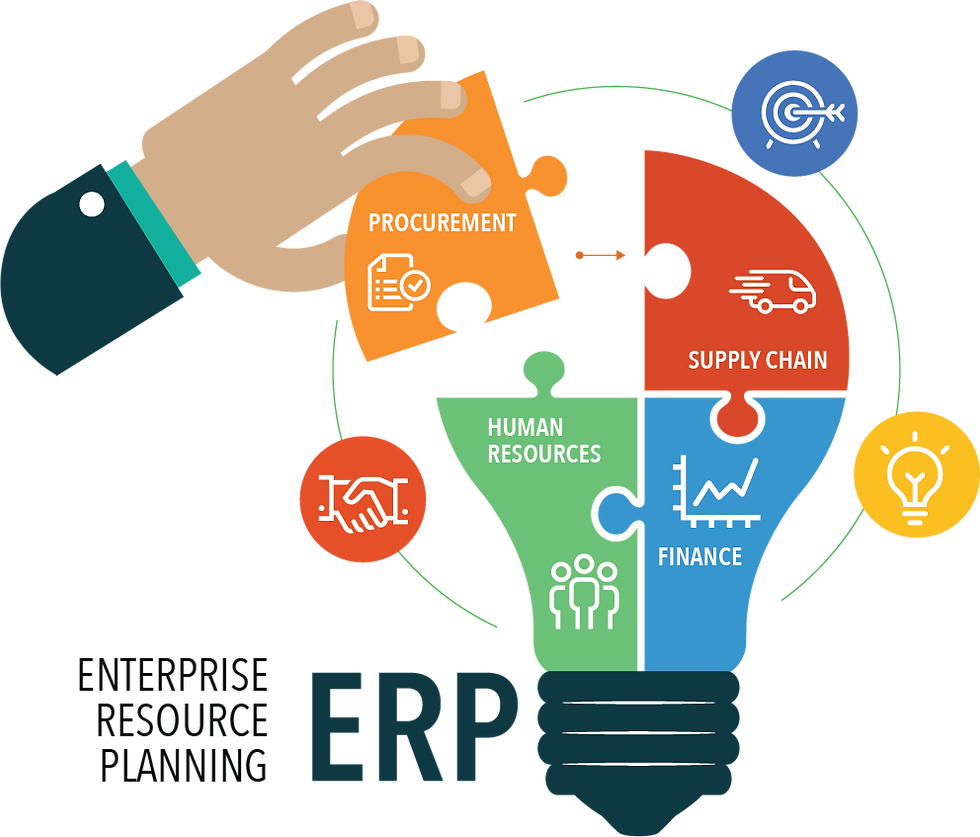Empowering Education: The Transformative Impact of ERP software for Education schools and Universiti
- solutionscakiweb
- Oct 18, 2023
- 2 min read
Educational institutions, whether they be schools, colleges, or universities, are increasingly turning to Enterprise Resource Planning (ERP) systems to streamline their operations. ERP for Educational Institutions Management System is a powerful solution that integrates various functions within an educational institution, and the continuous enhancement of this system is essential to meet the evolving demands of modern education.
The core features of an ERP for Educational Institutions Management System include Account Management System, School & Colleges Fee Management, Academic Management System, Online Admission Process, Online Exam Management, Transport Management System, Library Management, Hostel Management System, Canteen Management Process, Placement & Training Management, etc. Eazy Scholar’s School Management Software Enhancements in an ERP for Educational Institutions Management System involve.
Empowering Education through Enterprise Resource Planning (ERP) software has emerged as a powerful solution to streamline and optimize these complex operations. This transformative technology has revolutionized the way educational institutions function, allowing them to adapt to the digital age, enhance efficiency, and deliver a better overall educational experience.
Empowering Education with ERP Software:
Enterprise Resource Planning (ERP) software designed for the education sector integrates various functions and processes within ERP software for education. It provides a comprehensive platform to manage administrative tasks, academic operations, student data, and financial resources seamlessly. Below are some of the key ways in which ERP software empowers schools and universities.
Streamlined Administrative Processes:
ERP software for education simplifies administrative tasks by centralizing and automating processes such as admissions, student registration, attendance tracking, and scheduling.
Enhanced Academic Management:
ERP systems offer educators tools for curriculum planning, grading, and case studies, making it easier to track student progress and adjust teaching strategies. This fosters a data-driven approach to education and enables instructors to provide more personalized support to students.
Improved Student Information Management:
From admission to graduation, ERP software allows institutions to maintain a comprehensive database of student information. This information can be used to monitor student performance, track attendance, and provide the necessary support for students' academic and personal growth.
Financial Management:
Efficient financial management is essential for the sustainability of educational institutions. ERP software helps schools and universities manage budgets, track expenses, and optimize resource allocation, ultimately leading to cost savings and financial stability.
In conclusion, an ERP for Educational Institutions Management System is a vital tool for educational institutions to manage their operations effectively. By continually enhancing this system to adapt to the evolving educational landscape, institutions can improve efficiency, enhance the learning experience, and better prepare their students for the demands of the modern world. The ongoing development and enhancement of such systems are crucial to ensure they remain a valuable asset in the realm of education.




Comments